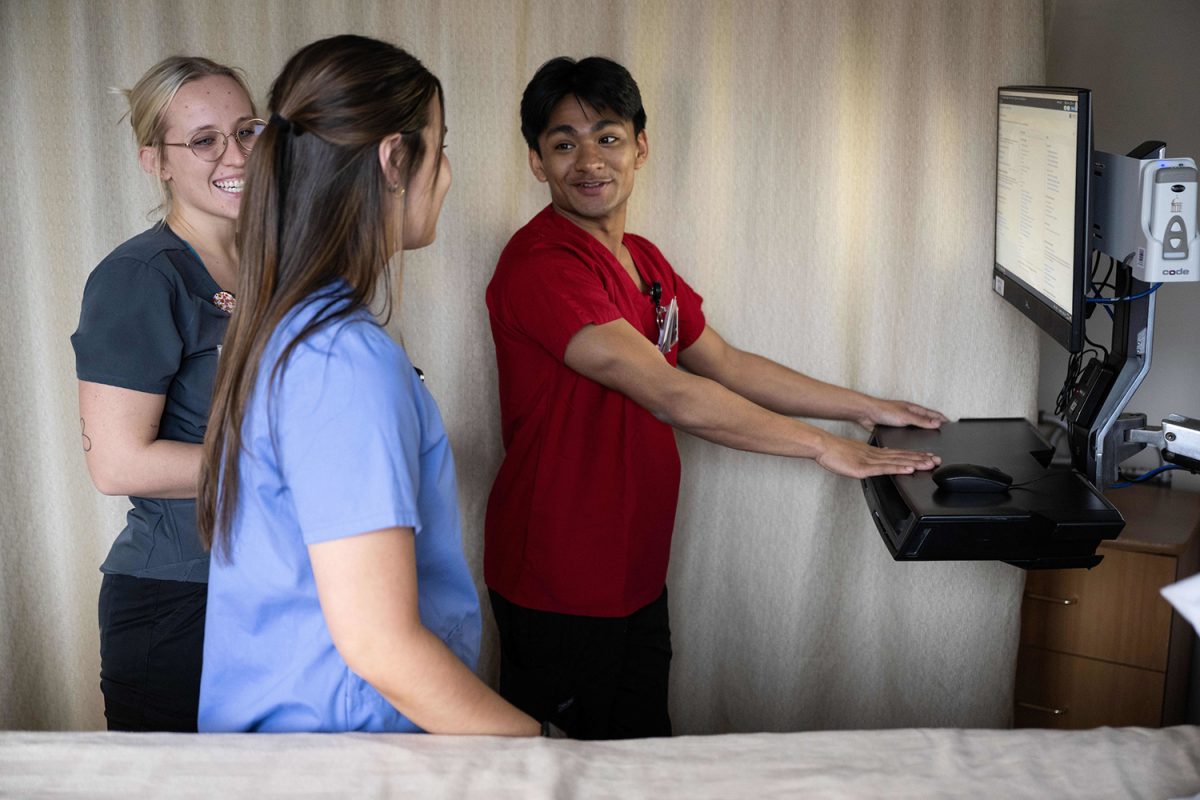Sachin Fong, a University of Iowa nursing student and patient care technician, came to college knowing he wanted to be a nurse and gain insight into the medical field.
The UI’s unit partner program allowed Fong to interact with patients in a clinical setting. Established in spring 2022, the program has since expanded to include 50-70 student unit partners.
Dan Lose, medical surgical services nursing division director at UI Health Care, said the exact number will differ depending on the time of year.
He said the program was developed to allow students to have a job where they could learn more about nursing and the healthcare industry while getting clinical experience.
Fong said being a unit partner allowed him to assist nurses and patient care technicians and help the transition to becoming a patient care technician, or personnel who care for patients by checking their vitals and taking care of their medical needs, much easier.
“It is a great way to get your foot in the door for anything medical,” Fong said.
Unit partners, Fong said, will do everything from restocking gloves to playing card games with patients and ensuring they have what they need.
“It really is whatever you want it to be, and you will absolutely make an impact by simply helping out around the unit,” Fong said
Jess McDaniel, a nurse manager at UI Health Care, said with many students’ schedules, a 40-hour orientation — the amount of orientation a patient care technician needs — sometimes is not feasible.
RELATED: New UIHC facility to increase health care access to residents in southeast Iowa City
The unit partner program requires four hours of orientation, where they learn about the hospital and their role as a unit partner, McDaniel said.
“Most of these students who want to go into the health care field have never had hospital experience, and this program allows them to develop those soft skills that are so important in the field,” McDaniel said.
McDaniel said she has seen a positive impact on patient care because unit partners can offer companionship to patients and provide them with therapeutic communication.
“Having that extra set of hands to help nurses, staff, and patient care technicians helps them be more responsive in meeting patient needs,” McDaniel said.
Lose said the hours students are required to work vary depending on their schedules, from three hours at a time between classes to a full day on the weekends.
“These students have really supported our patients and staff and when they go into their next role they will have autonomy and skills they can apply,” Lose said.
Fong said being a unit partner helped solidify his decision to become a registered nurse.
“I was slightly on the fence, but the second I started I knew this was where I belonged, taking care of patients,” Fong said.



